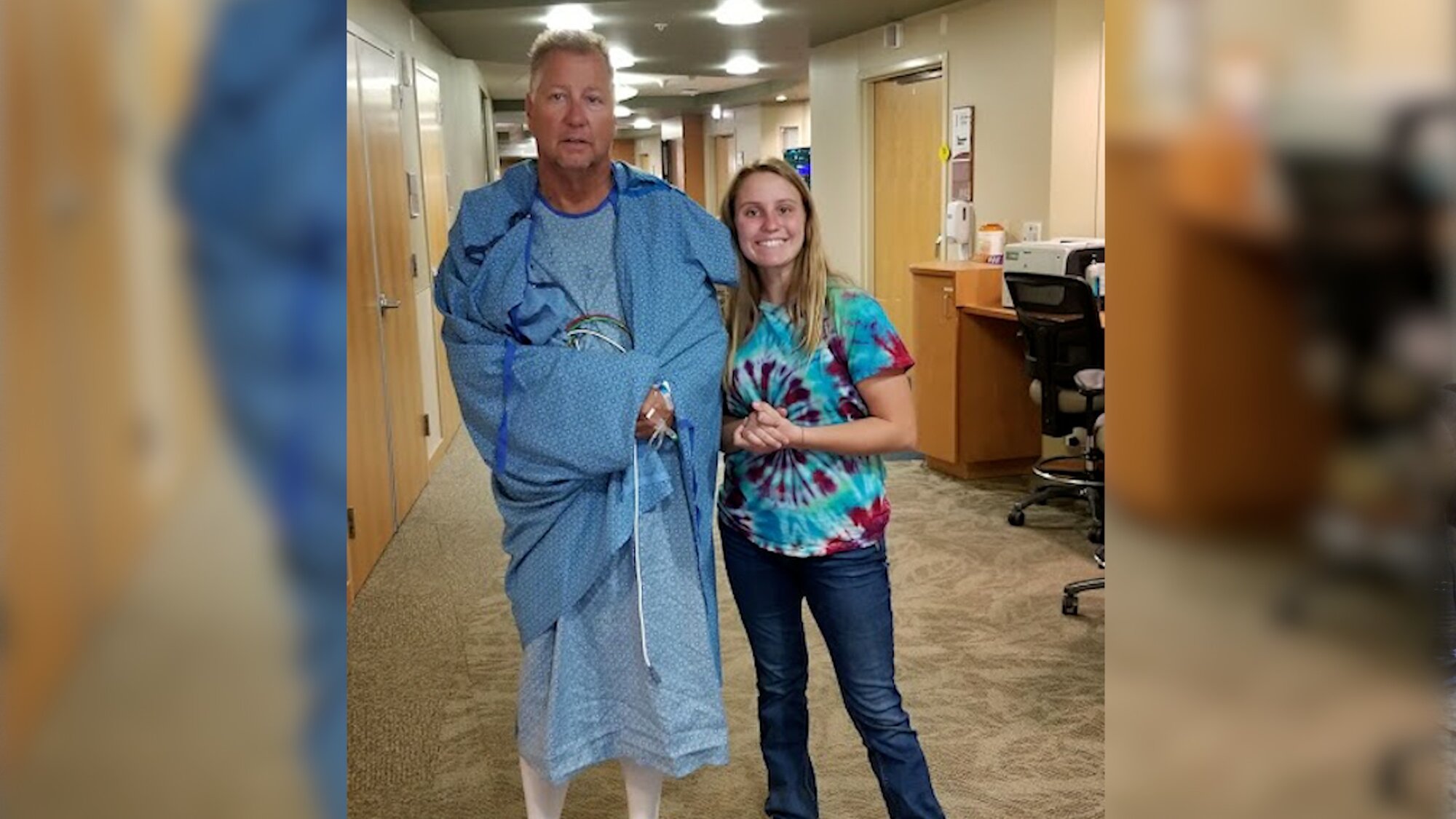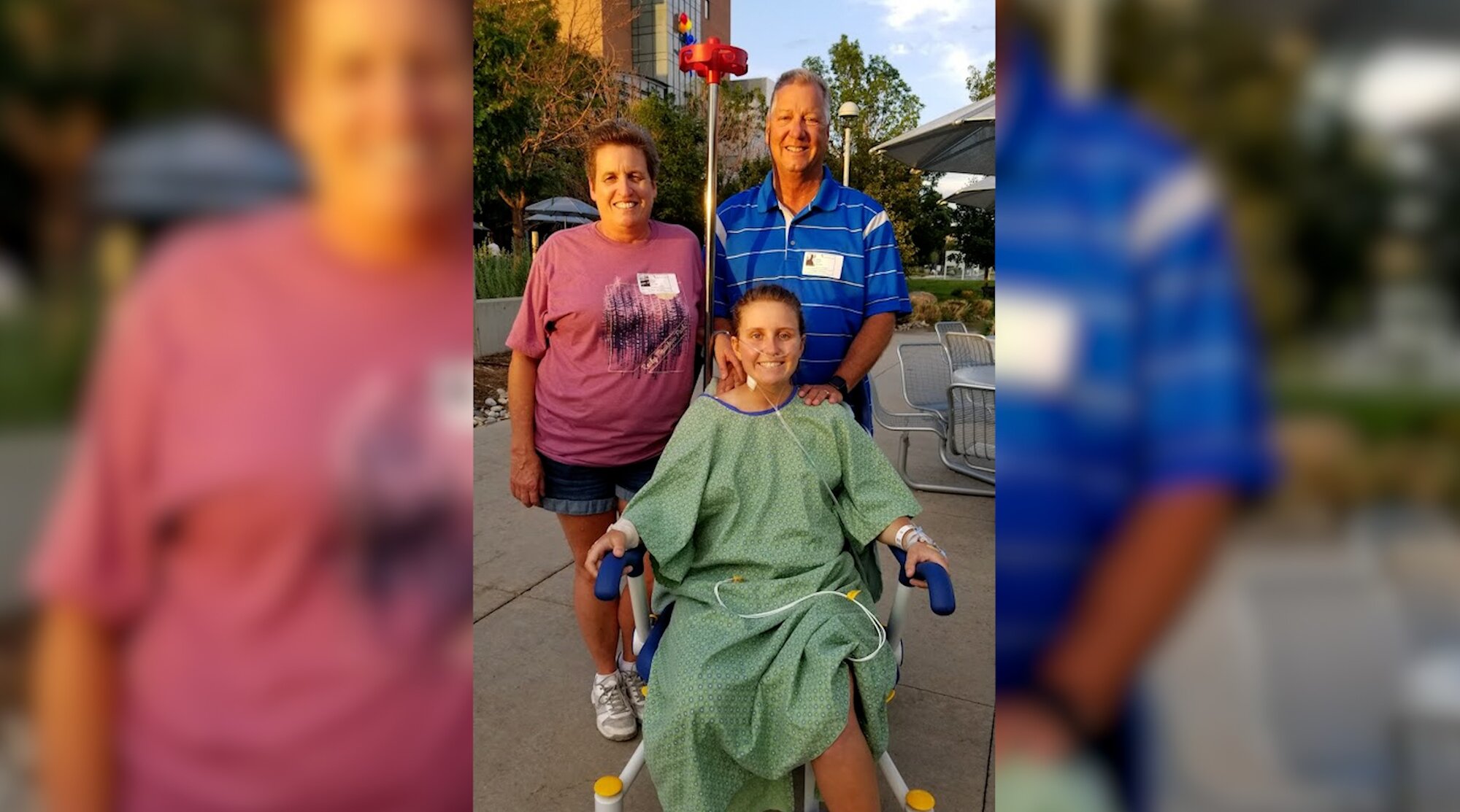Heart to heart: A father and daughter share journeys through open-heart surgery

FORT COLLINS, Colo. — Tom Kissler and his daughter Kristen enjoy doing things together. Family photos show the two of them in the mountains and in Yellowstone National Park.
"We've always been really close. He's always been my No. 1 cheerleader," said Kristen, who plans to graduate from Colorado State University this year with a degree in Health and Exercise Science.
But they also shared serious heart defects. Kristen's condition was diagnosed when she was a baby; Tom was surprised to learn about his condition in 2019 when he was 58.
Recently, both went through open-heart surgery to correct their conditions at the Anschutz Medical Campus in Aurora. And both benefitted from the Colorado Adult and Teen Congenital Heart (CATCH) Program, a partnership of Children’s Hospital Colorado and UCHealth University of Colorado Hospital on the Anschutz campus. It's one of the largest programs of its kind in the nation.
"It is very uncommon for family members to be diagnosed with adult congenital heart disease and have to have surgery around the same time period," said Dr. Amber Khanna, associate director of the CATCH Program. "[It was a] huge coincidence."
‘Some real agonizing days’
Tom, 60, a former ski racer and bicycle racer who has stayed active all his life, said he knew "something wasn't right" in late 2018.
As he recalls, "I was just losing energy. I was just getting more and more tired, seemed like every day."
A long series of medical tests led to a diagnosis: partial anomalous pulmonary venous return.
Tom's condition is "really unusual to be diagnosed at his age, but is actually a fairly common congenital heart defect," Khanna said.
Or as Tom puts it, at his age, usually "my condition is diagnosed during an autopsy."
Tom's surgery was at University of Colorado Hospital. He remembers the surgery experience as "painful. There were some real agonizing days. I mean it's not something fun."

As for Kristen, 22, she managed to get through her childhood coping with her congenital aortic stenosis and even stayed active in athletics.
Her whole life, Kristen has visited a cardiologist every six months. "It was kind of interesting because growing up, obviously we didn't know about his condition," she said of her dad.
But after Kristen turned 21, the time came to replace her aortic valve.
"Open-heart surgery is a horrifying thought, especially as a parent when you're thinking about your child is going to go in for open-heart surgery," Tom said. "But having gone through it myself, I knew what to expect."
A preventable death
When it came time for Kristen to face her surgery at Children's Hospital, Tom was there to help her get through it by sharing his experiences.
"It was a lot, and there were times when I definitely felt like I was going through it myself," Kristen said, "but since my dad had just had it, it was kind of nice, because I could look at him and be like, 'Hey, what should I expect, what is going to happen, what am I going to go through?' He really helped walk me through it and really helped put some of my nerves to rest."
Father and daughter took turns helping each other walk down the hospital hallway while recovering from their back-to-back surgeries.

Now, the two Kisslers are back up and running — literally. They just tackled a half-marathon together and are planning a second run later this year.
Khanna notes that February is Heart Health Month, spotlighting heart disease as the leading killer of both men and women in the United States.
According to federal data, about 659,000 people in the U.S. die from heart disease each year on average — about one out of every fourth deaths in a non-COVID year. And about 805,000 people have a heart attack each year, some without even knowing it.
And yet many deaths from heart disease are preventable.
That's why Khanna sees Heart Health Month as an important time for people "to focus in on their cardiovascular wellbeing and do the internal checking to see if they're doing the things that they're supposed to be doing. Are they exercising? Are they eating healthy? Are they avoiding all tobacco products? Have they seen their doctor recently and know what their blood pressure is and their cholesterol is?
"It's really important to take care of your heart."
Brian Willie is the content production manager at Rocky Mountain PBS. You can reach him at brianwillie@rmpbs.org.
